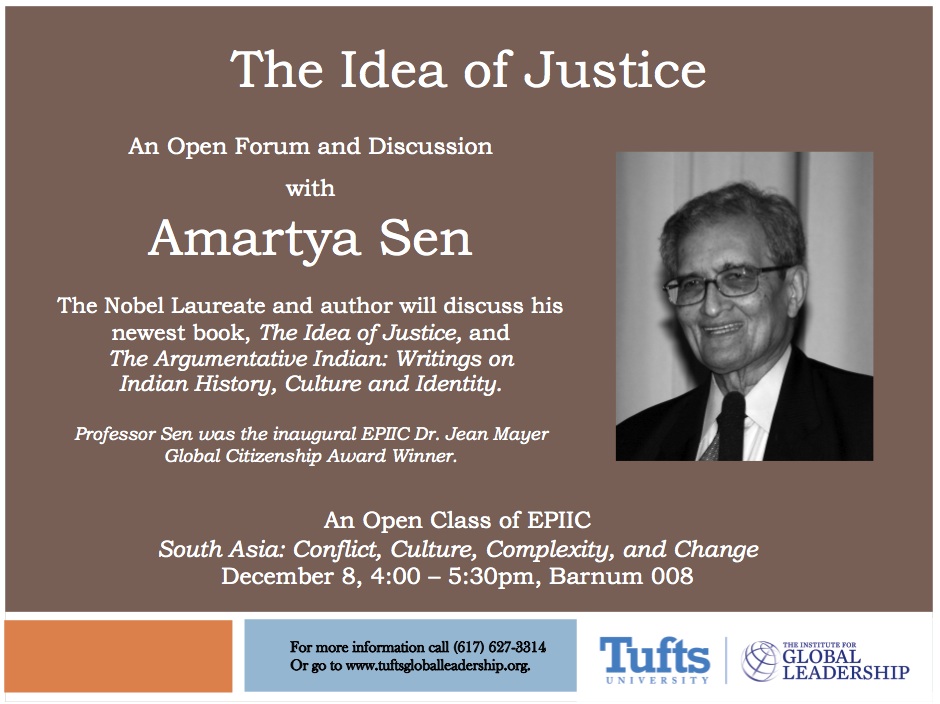The Idea of Justice: An Open Forum and Discussion with Amartya Sen

|
|
 The Nobel Laureate and author will discuss his newest book, The Idea of Justice, and The Argumentative Indian: Writings on
The Nobel Laureate and author will discuss his newest book, The Idea of Justice, and The Argumentative Indian: Writings on
Indian History, Culture and Identity.
Professor Sen was the inaugural EPIIC Dr. Jean Mayer Global Citizenship Award Winner.
An Open Class of EPIIC
South Asia: Conflict, Culture, Complexity, and Change
Amartya Sen is Thomas W. Lamont University Professor, and Professor of Economics and Philosophy, at Harvard University and was until recently the Master of Trinity College, Cambridge. He has served as President of the Econometric Society, the Indian Economic Association, the American Economic Association and the International Economic Association. He was formerly Honorary President of OXFAM and is now its Honorary Advisor. Born in Santiniketan, India, Amartya Sen is an Indian citizen. He studied at Presidency College in Calcutta, India, and at Trinity College, Cambridge. He was Lamont University Professor at Harvard also earlier, from1988–1998, and previous to that he was the Drummond Professor of Political Economy at Oxford University, and a Fellow of All Souls College (he is now a Distinguished Fellow of All Souls). Prior to that he was Professor of Economics at Delhi University and at the London School of Economics.
Amartya Sen’s books have been translated into more than thirty languages, and include Choice of Techniques (1960), Collective Choice and Social Welfare (1970), On Economic Inequality (1973, 1997), Poverty and Famines (1981), Choice, Welfare and Measurement (1982), Resources, Values and Development (1984), On Ethics and Economics (1987), The Standard of Living (1987), Inequality Reexamined (1992), Development as Freedom (1999), Rationality and Freedom (2002), The Argumentative Indian (2005), Identity and Violence: The Illusion of Destiny (2006) and The Idea of Justice (2009). His research has ranged over a number of fields in economics, philosophy, and decision theory, including social choice theory, welfare economics, theory of measurement, development economics, public health, gender studies, moral and political philosophy, and the economics of peace and war. He was the first recipient of the Dr. Jean Mayer Global Citizenship Award.

